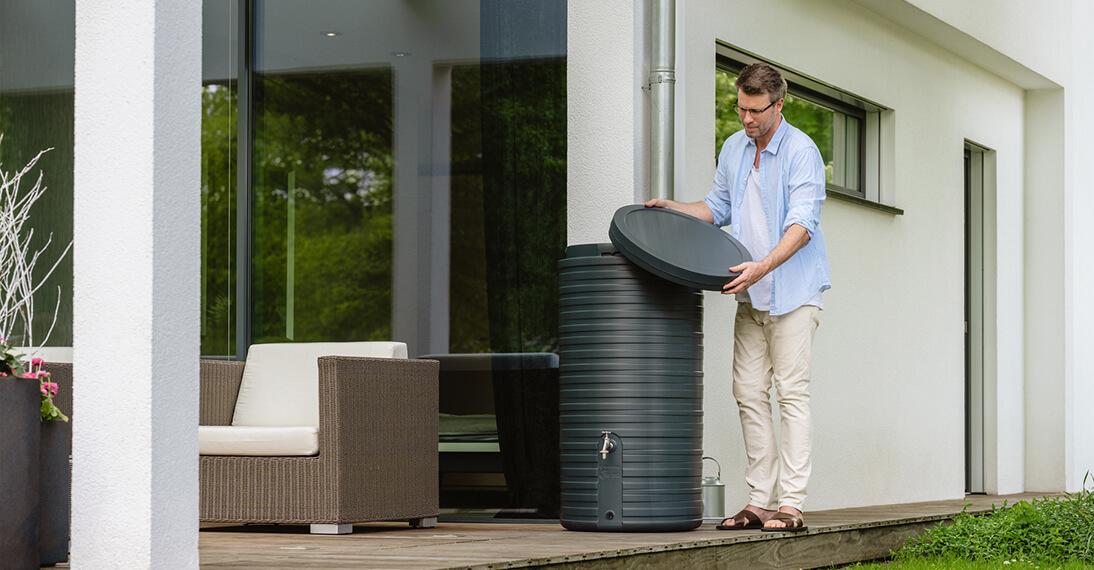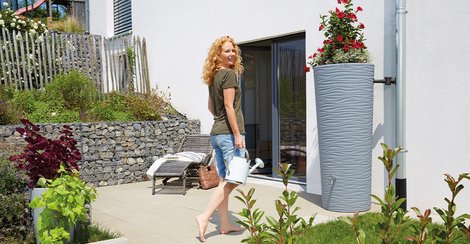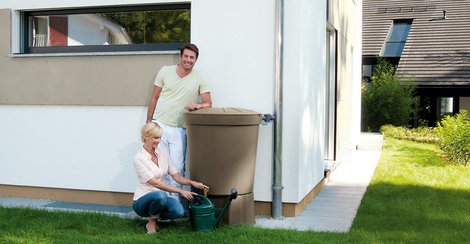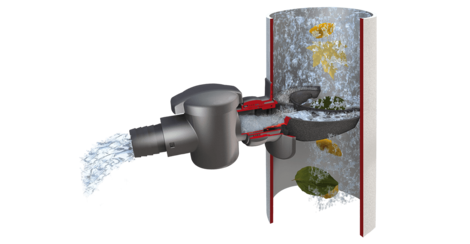Mosquitoes in rain barrels: Tips for prevention and control
Rain barrels are the easiest way to collect rainwater and use it for the garden. Not only can you save drinking water, but you also help to ensure that the water is returned to the natural cycle. Unfortunately, rain barrels installed above ground often have an unpleasant side effect: mosquitoes. Stagnant water, such as that found in full rain barrels, is an ideal breeding ground for insects. However, it is important to know that it is difficult to completely avoid a mosquito infestation in the garden. The mosquitoes also find other breeding grounds. Nevertheless, there are measures that can be taken to significantly reduce or even prevent the number of mosquito larvae, at least in the rain barrels.
Tips for prevention
To minimize the number of mosquitoes in your garden right from the start, it makes sense to use a closed, decorative rain barrel or a rain barrel with a lid. This prevents mosquitoes from even considering the rain barrel as a breeding ground. If your barrel does not have a lid and this cannot be retrofitted, you can also stretch a close-meshed net directly over the barrel.
Use a rain collector, such as our Speedy, to ensure that water gets into the barrel even if it has a closed lid. Rain collectors also have the advantage of reliably filtering dirt out of the rainwater.

Both points not only help to prevent a plague of mosquitoes, but also create the basis for the best possible water quality in your rain barrel.
Tip: Closed decorative rain barrels usually have much thicker walls than classic rain barrels. This makes them less permeable to light and also prevents algae from forming in the water in warm weather.
Tips for combating
If it is already too late or you do not have the opportunity to close your barrel, you will find a few tips below on how to control mosquito larvae. It usually takes three weeks for the midge larvae to develop into flying insects. You should not miss this time window.
Below you will find helpful tips to help you control mosquito larvae in your rain barrel:
- Natural enemies: They do exist, unfortunately using them in your rain barrel is difficult as they are fish and birds. Limited size and access make this rather unrealistic.
- Control with bacteria: Probably the most effective method of controlling mosquito larvae is the use of Bacillus thuringiensis israelensis (Bti). This is a bacterium that is already widely used in agriculture. This bacterium is contained in most mosquito control products and is available in both tablet and liquid form. It is non-toxic to beneficial insects, humans and plants and specifically targets mosquito larvae.
- Filtering the surface: Another, albeit laborious, option is to screen the surface of the water with a thin-meshed net or catch it with a narrow-meshed landing net. However, this process is time-consuming and it is likely that larvae will still remain in the garbage can. Dispose of the caught larvae on the lawn, as they will die there.
- Dispersal with scented plants: Scented plants such as scented geraniums, lemon balm, catnip but also tomatoes can be placed near the rain barrel as mosquitoes avoid these scents. This can help to reduce the attraction of mosquitoes to your rain barrel and prevent them from laying larvae.
- As a last resort, empty the rain barrel in good time. If the mosquito infestation becomes too great or hundreds of eggs have already been laid in the barrel, it is advisable to empty the barrel early. In other words, before the mosquitoes have hatched. The larvae die within a few minutes when the water seeps away.
Home remedies for control
We advise against using household products such as oil and washing-up liquid. Even if the surface tension is altered by both agents and the larvae repeatedly submerge and eventually die, both variants have negative aspects. As oil floats on the surface, it can become rancid and smell unpleasant in strong sunlight. Depending on where you have them, this can quickly become unpleasant. Most washing-up liquids contain substances that should not be released unfiltered into the environment. The water should therefore no longer be used in the garden after it has been treated with washing-up liquid.




